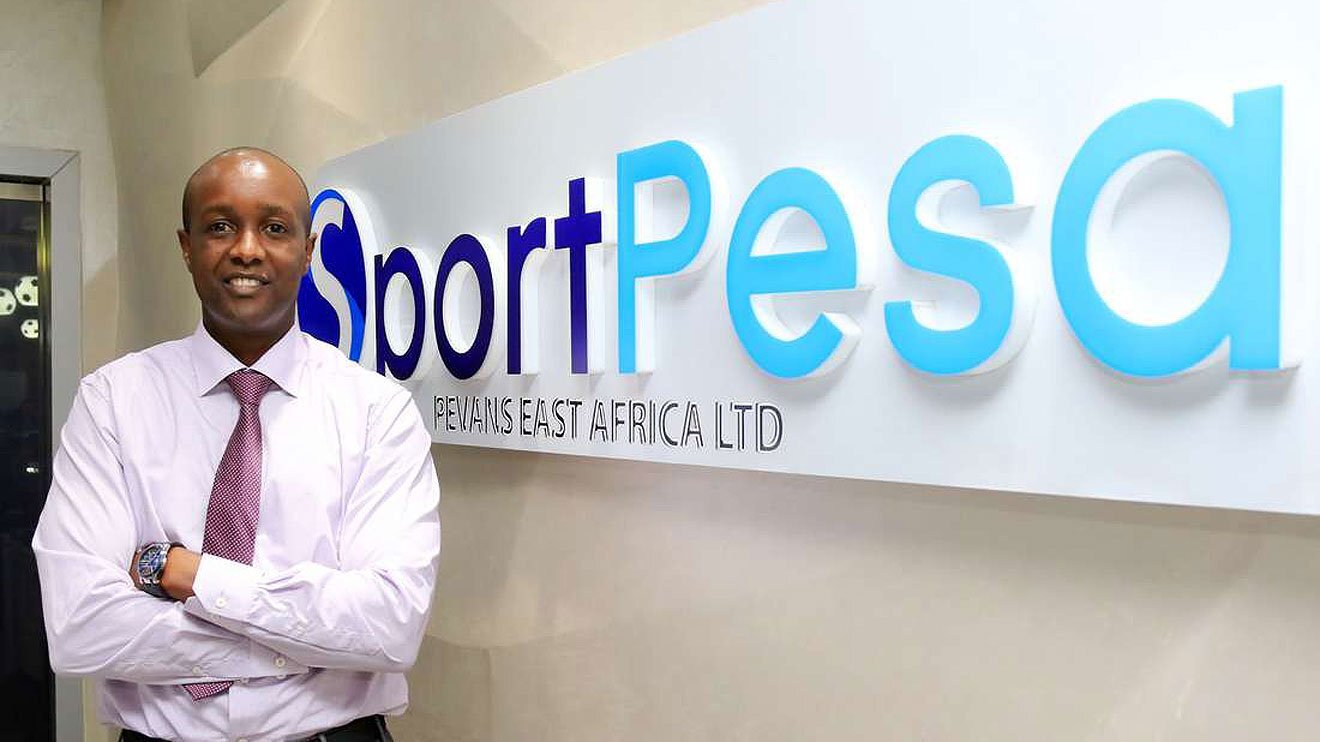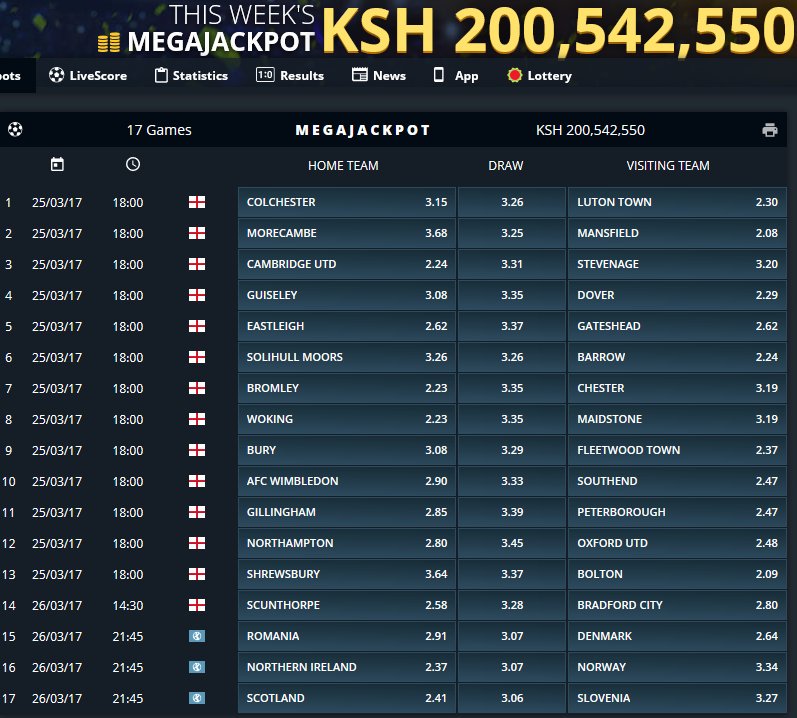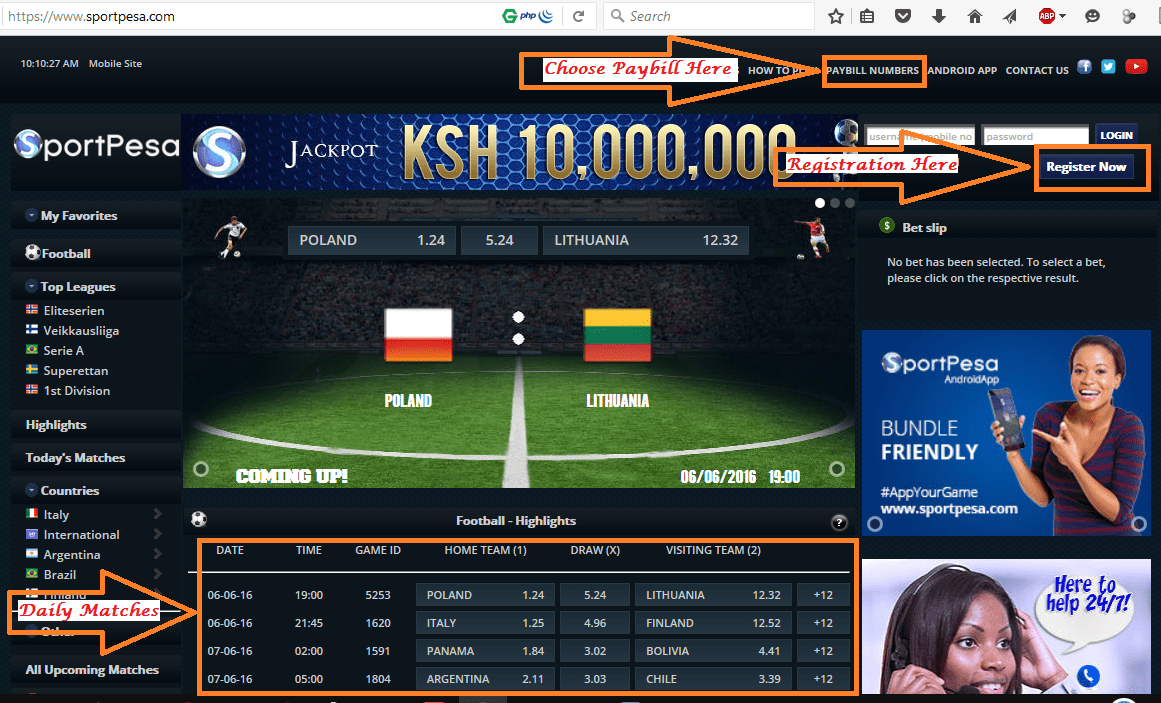Kenya’s SportPesa Which Once Earned $1bn Reportedly Sells Its Brand For $134K
Floundering for help under Kenya’s repressive taxation on betting firms, SportPesa has done its worst — sell off its brand for a meagre $134k — in a secret deal reported by Business Daily, a Nairobi-based print media. For the Kenyan betting firm which was reported to have earned up to Ksh100 billion ($1 billion) in revenues in 2018, this is perhaps the final stroke that broke the camel’s back.

“In consideration of the sum of £100,000, the assignor hereby assigns to the assignee absolutely with full title guarantee all its rights, title and interest in and to the trade marks,” an agreement sighted by Business Daily revealed.
“Any payments to be made to the assignor under this clause shall be set off against any amounts owed by the assignor to the assignee or any other member of the assignee’s group to the extent possible.”
Here Is What You Need To Know
- According to Business Daily’s report, the SportPesa gaming brand was sold for £100,000 (Sh14.7 million) in June this year, triggering a fight among the founders of the sports betting platform.
- The agreement revealed that Pevans East Africa, the owner of the SportPesa trade mark, had on June 2, 2020 signed an agreement to transfer the brand to UK-based Sportpesa Global Holdings Limited.
- It was reported that although Pevans’ chief executive Ronald Karauri signed the deed of assignment on behalf of the firm, the decision to transfer the brand was not unanimous.
- Karauri was reported to later emerge with a controlling 54.4 per cent stake in Milestone Games Limited, the company that was subsequently assigned the right to use the SportPesa trade mark in Kenya by Sportpesa Global in the roundabout deals. Kalina Karadzhova, a Bulgarian national and a resident of the Isle of Man, signed the deed on behalf of Sportpesa Global where she serves as a director.
- Kenyan entrepreneurs Paul Wanderi Ndung’u and Asenath Maina, who own a combined 38 per cent stake in Pevans, have accused Mr Karauri and the foreign investors of locking them out of the firm’s management and strategic decisions since 2017.
- Mr Ndung’u, who holds a 17 per cent stake in Pevans, says the deal undervalued the SportPesa brand by billions of shillings.
The Background To SportPesa’s Chequered History In Kenya
- In 2019, both SportBesa and Betin stopped doing business in Kenya due to what they saw as a hostile tax environment.
- The government in Nairobi hiked gambling tax rates from 10 to 20 percent.
- In its ruling, the court determined that the tax could only be applied to a player’s winnings at the end of every month, and that the Kenyan Revenue Authority must collect revenue from customers, rather than directly from operators.
- Ronald Karauri welcomed the ruling, suggesting that it may prompt it to reconsider its withdrawal from the Kenyan market.
“We have long advocated for a fair and level playing field and a regulatory and taxation environment that both supports business and inward investment, and is in the interests of Kenyan consumers,’’ he said.
“SportPesa will now reconsider the future of its operations in Kenya,” he added. “We encourage the authorities to take the Tax Appeals Tribunal ’s ruling fully on board and to now apply a reasonable approach to gambling regulation and taxation, in line with international best practice.”

- The dispute over the winnings tax dates back to its introduction, with SportPesa arguing the tax removed incentive for customers to place bets.
- Although the Kenyan High Court initially blocked collection of the tax, the Kenyan Revenue Authority and Betting Control and Licensing Board agreed on 1 July to withdraw the licences of 27 companies who failed to pay the levy, including SportPesa and Betin.
- After the state ordered telecoms company Safaricom to block banking services to the 27 companies, leaving customers unable to deposit funds — a move SportPesa said violated a court order — SportPesa ended its sport sponsorships in Kenya and placed its 453 employees in the company on leave.
- A SportPesa spokesperson told iGamingBusiness.com in early September that the company believed it was heading towards the resumption of normal operations after constructive talks. However, on 19 September, the Kenyan Parliament’s Finance Committee proposed a new 20% excise tax rate on betting stakes in the 2019/20 budget, an increase from the 10% stake proposed by the treasury in June.
- In response, SportPesa that it would not operate in the country until the rate was changed, and laid off its Kenya-based employees.
A Short-lived Comeback
On October 30th 2020, SportPesa (Pevans East Africa) declared that it was back on the Kenyan betting scene after a one-year absence. Part of the reasons for its absence is because the betting firm’s previous license was among the 27 licenses revoked by the Kenyan Revenue Authority and Betting Control and Licensing Board for failure to comply with increase in gambling tax rates from 10 to 20 percent. The revocation was enforced despite a Kenyan High Court ruling blocking collection of the tax. Since then, SportPesa has been in court.
As a way to get around the revocation, Pevans East Africa (owner of SportPesa) then assigned its full rights under its tradename [SportPesa], for five years, to another gaming firm, known as Milestone Games Limited (under the trademark, Milestone Bet), which had been newly licensed by BCLB.
However, BCLB through Maina said this return would not be allowed as SportPesa, being the property of Pevans East Africa, is still subject to a pending court case over its own license. This, according to Maina, prevented another licensee from using the brand name of SportPesa.
Consequently, Maina and his Board had proceeded to suspend Milestone’s new operating license and had equally asked payment providers such as Safaricom, which owns the popular M-Pesa mobile payment service, to stop processing transactions for the site.
He further proceeded to state that “the known owners of the trading name Sportpesa are not licensed to operate in the gaming business in Kenya,” a statement which leaves Sportpesa’s future in the east African country still foggy even when the appeal concludes.
Maina said that Milestone may continue to trade using the Milestone Bet brand.
Read also: Four African Startups Secure $75k In Investments From Enygma Ventures
The Brand SportPesa
Birthed in 2014, SportPesa, quickly became a popular brand in Kenya and globally as a result of intense marketing, sophisticated gaming technology and record-breaking jackpots.
Pevans spent billions of shillings in partnerships and sponsorships of local and international sports teams, including Kenya’s Gor Mahia Football Club, UK’s Everton, Hull City, Arsenal and Formula One’s Racing Point.
The gaming platform is estimated to have a loyal customer base of 12 million in Kenya from which it generated revenues of Sh150 billion in 2018 alone.
The firm paid out Sh129.6 billion as winnings, leaving it with Sh20.1 billion that analysts reckon is enough to generate a profit in excess of Sh10 billion for a firm with thin operating expenses, mainly staff.
Charles Rapulu Udoh

Charles Rapulu Udoh is a Lagos-based lawyer who has advised startups across Africa on issues such as startup funding (Venture Capital, Debt financing, private equity, angel investing etc), taxation, strategies, etc. He also has special focus on the protection of business or brands’ intellectual property rights ( such as trademark, patent or design) across Africa and other foreign jurisdictions.
He is well versed on issues of ESG (sustainability), media and entertainment law, corporate finance and governance.
He is also an award-winning writer








